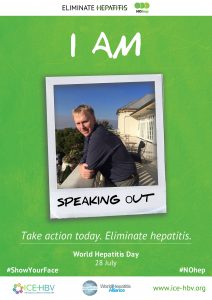
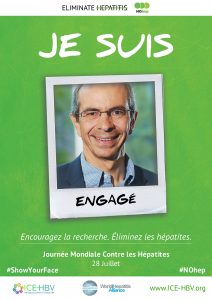
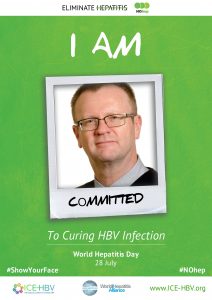

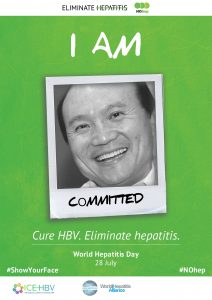
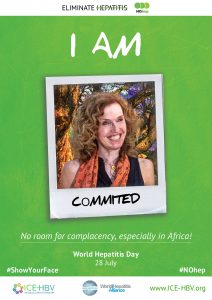
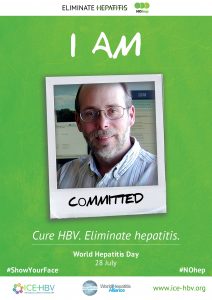
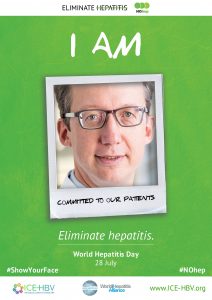
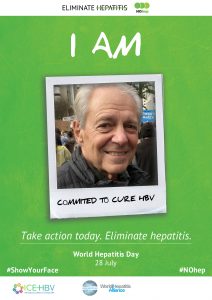

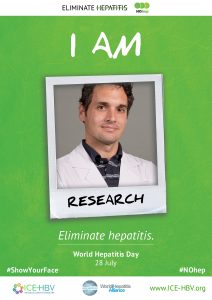
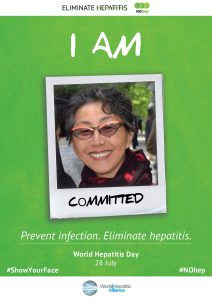
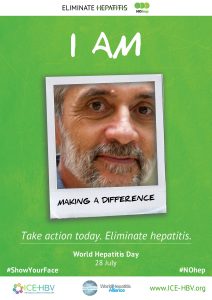
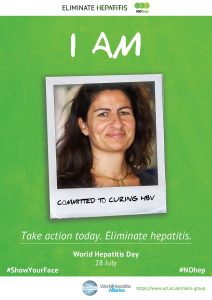


To participate to World Hepatitis Day campaign, please create your own poster using this link and send it to info@ice-hbv.org or tweet @ICE_HBV
















To participate to World Hepatitis Day campaign, please create your own poster using this link and send it to info@ice-hbv.org or tweet @ICE_HBV
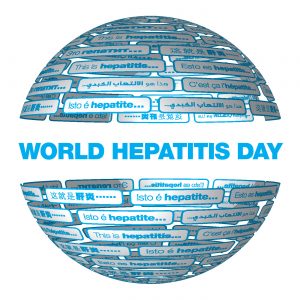
2-2:45pm – Session 1 – Vaccines – the Most Effective Route to Elimination?
Co-Chairs: Peter Revill (Doherty Institute) and Helen Tyrell (Hepatitis Australia)
2:45-3:45pm – Session 2 – Test & Treat – Update and Challenges to Roll-Out
Co-Chairs: Mike Catton (Doherty Institute) and Melanie Eagle (Hepatitis Victoria)
4:00-4:45pm – Session 3 – HBV & Migrants
Chair: Benjamin Cowie (Doherty Institute)
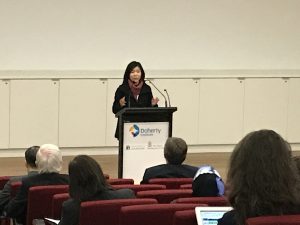
4:50-5:45pm – Session 4 – Global Collaborations to Cure CHB
Chair: Anne Kelso (NHMRC)
5:45-6:00pm – Session 5 – Progress made in the roll-out of Victoria viral hepatitis strategies , The Honorable Frank McGuire, Parliamentary Secretary for Medical research
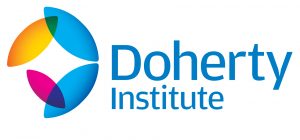
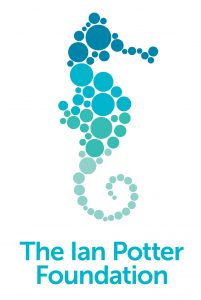
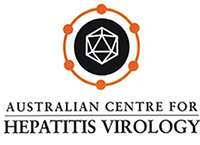
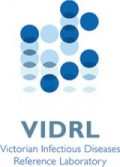
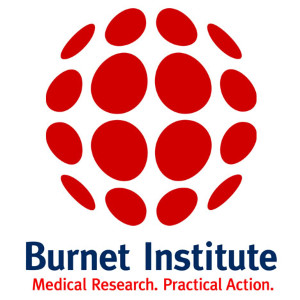
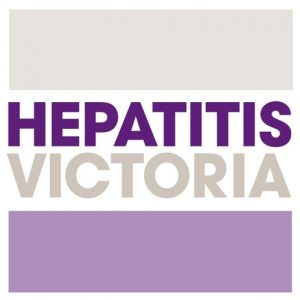
General Abstracts
http://www.hbvmeeting.org/abstracts-and-travel-grants/abstract-submission/
ICE-HBV and the WHO Collaborating Centre for Viral Hepatitis at the Peter Doherty Institute for Infection and Immunity are organising a World Hepatitis Day symposium entitled From Vaccine to Cure: The Road to Viral Hepatitis Elimination.
Join us on 28 July from 2pm to 6pm, in person or online via Zoom. Please register here: https://goo.gl/2noLVa (free). Check the preliminary programme.

To participate to World Hepatitis Day campaign which will be displayed during the event, please create your own poster using this link and send it to info@ice-hbv.org or tweet @ICE_HBV
All events related to World Hepatitis Day in Victoria can be found on Hepatitis Victoria website.





ICE-HBV manifesto was selected as one of the 180 scientific findings published in 2016 that editors believe could have the greatest impact on society’s most pressing problems.
It is free-access until the end of July on:
Following ICE-HBV’s request to Anthony Fauci to consider strengthening HBV research programmes and subsequent discussions, we received the following statement from John J. McGowan, Ph.D., Deputy Director for Science Management at NIAID:
We at the National Institute of Allergy and Infectious Diseases (NIAID) agree that chronic hepatitis B infection remains a major problem globally. In the United States as well as in other developed and developing countries, too few are vaccinated. The result is that millions with chronic disease will require treatment to prevent end-stage liver disease, cancer and an early death. NIAID supports a broad hepatitis B research portfolio, including basic research supported through R01 and R21 grants, drug and animal model development through small business grants, and the availability of a comprehensive array of preclinical services. In addition, NIAID has a current initiative PAR-14-255 (Multidisciplinary Studies of HIV and Viral Hepatitis Co-infection) with a final receipt date in May of 2017. NIAID also has two new concepts that were approved by the NIAID Advisory Council in January 2017:
You also should be aware of the SBIR initiative launched by the National Institute of Diabetes and Digestive and Kidney Diseases (NIDDK) entitled “New Technologies for Viral Hepatitis SBIR (R43/R44)”.
(NIAID staff) will continue to work with you to address the challenges we face as a community.
ICE-HBV Governing Board will keep approaching research institutes and foundations to request a scaling-up of HBV research programmes worldwide.
In May 2016, the World Health Assembly endorsed the Global Health Sector Strategy (GHSS) on viral hepatitis 2016–2021. The GHSS calls for the elimination of viral hepatitis as a public health threat by 2030 (reducing new infections by 90% and mortality by 65%).
This WHO Global hepatitis report describes, for the first time, the global and regional estimates on viral hepatitis in 2015, setting the baseline for tracking progress in implementing the new global strategy.
The report focuses on hepatitis B and C, which are responsible for 96% of all hepatitis mortality. It presents data along the five strategic directions (strategic information, interventions, equity, financing and innovation) – key pillars of the GHSS to facilitate monitoring of progress in countries, regions and globally, and to measure the impact of interventions on reducing new infections and saving lives between 2015 and 2030.
http://www.who.int/hepatitis/publications/global-hepatitis-report2017/en/
Register here: http://scienceofhbvcure.com/
Apply here.
Please note that the presentations are available as ‘posters’ only.
Deadlines:
Deadline for abstract submission: April 21st, 2017
Notification of acceptance:April 28th, 2017